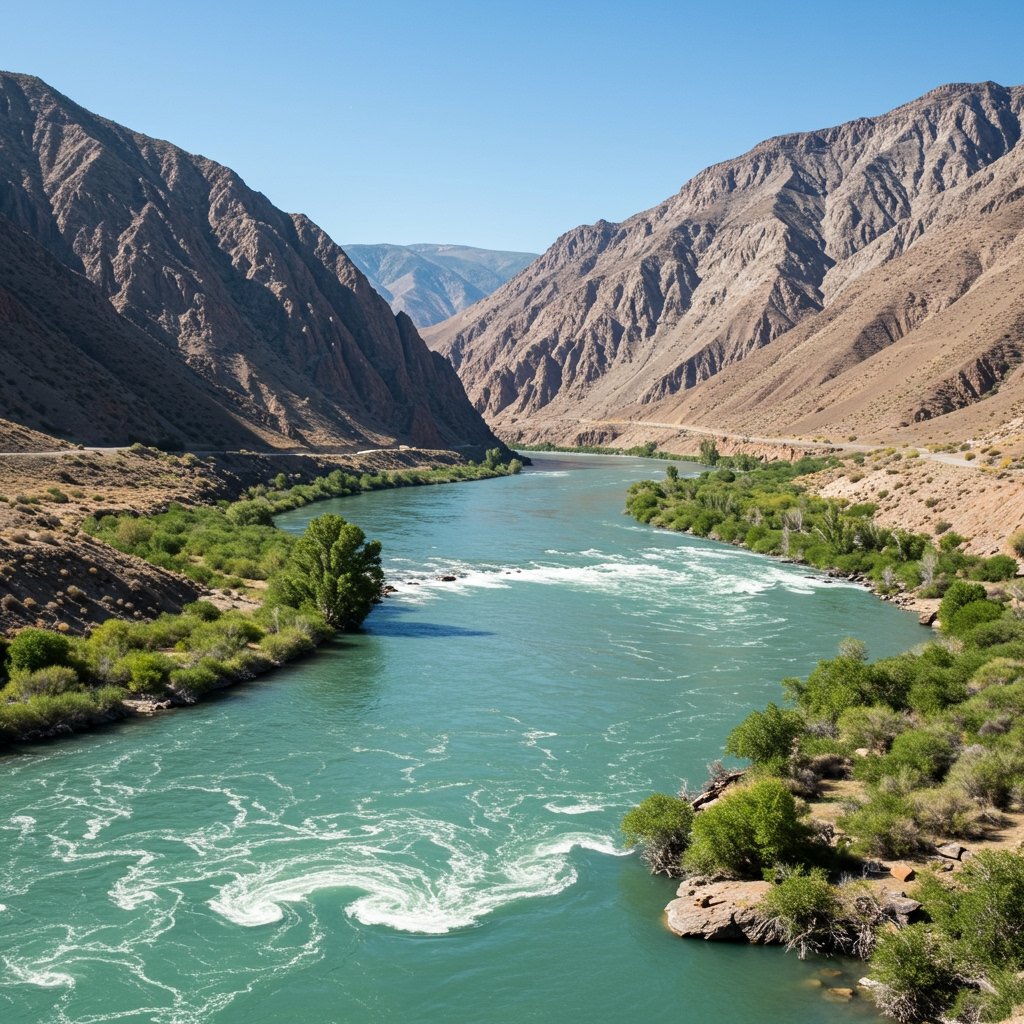Western Cities Face Escalating Water Crisis
Mayors representing major metropolitan areas across the Western United States are issuing an urgent plea to the Trump administration, requesting substantial federal assistance to confront a rapidly escalating water scarcity crisis centered on the Colorado River. The call highlights the critical decline in river flows, a phenomenon they directly attribute to the impacts of climate change, underscoring the severe challenges facing millions who rely on the vital waterway.
The Colorado River is the lifeblood of the arid West, providing drinking water to approximately 40 million people and irrigating millions of acres of farmland across seven U.S. states (Arizona, California, Colorado, Nevada, New Mexico, Utah, and Wyoming) and Mexico. Decades of drought, exacerbated by rising temperatures and altered precipitation patterns linked to climate change, have significantly reduced the river’s flow and depleted its crucial reservoirs, including Lake Mead and Lake Powell. This environmental stress is now translating into profound economic and social challenges for the cities and communities dependent on its water.
‘Climate Mayors’ Sound the Alarm
The group making the appeal, often referred to in discussions as ‘Climate Mayors’ due to their collective focus on climate action and resilience, represents a diverse coalition of urban centers across the Western US. Their unified voice seeks to elevate the water crisis to a national priority, arguing that the scale and complexity of the problem necessitate a robust, coordinated federal response that transcends state boundaries and local capacities.
The mayors emphasize that while local and state governments are implementing conservation measures, water-saving technologies, and regional management strategies, the severity of the decline in river flows demands a higher level of intervention. They argue that federal resources and leadership are essential for investing in large-scale infrastructure projects, facilitating interstate agreements, supporting scientific research, and providing emergency relief if conditions worsen. The link drawn between climate change and the diminished flow is central to their argument, framing the issue not just as a regional drought, but as a long-term consequence of a changing global climate requiring sustained national attention.
Federal Role and Leadership Transition
The appeal specifically targets the Trump administration, recognizing the federal government’s significant role in managing interstate waterways and overseeing key water infrastructure through agencies like the Bureau of Reclamation. The Colorado River system is largely controlled by federal dams and reservoirs, making federal involvement indispensable in managing its complex allocation system among the basin states.
The timing of the mayors’ call also coincides with a notable leadership transition at a critical federal agency. Ted Cooke, the former boss of the Central Arizona Project (CAP), a major aqueduct system that delivers Colorado River water to central and southern Arizona, has reportedly been tapped to lead the Bureau of Reclamation. This appointment is particularly significant given Cooke’s extensive experience managing water resources within the Colorado River Basin and his intimate knowledge of the challenges faced by downstream states heavily reliant on the river, such as Arizona.
Cooke’s previous role at CAP involved navigating complex water politics, negotiating water rights, and implementing strategies to cope with the impacts of drought and reduced river flows. His move to the top position at the Bureau of Reclamation places a figure with deep regional expertise and direct operational experience in a crucial federal role responsible for the river’s management and the operation of its key infrastructure. This leadership change occurs amidst ongoing, high-stakes Colorado River discussions among the basin states, tribal nations, and the federal government, aimed at developing long-term strategies to adapt to reduced water availability and avoid potential future shortages and conflicts.
The Path Forward
The call for federal help underscores the shared vulnerability of Western cities to the impacts of climate change and water scarcity. While cities are implementing local conservation programs, the interconnected nature of the Colorado River system means that effective management requires a coordinated, basin-wide approach supported by significant federal investment and policy. The mayors’ plea serves as a potent reminder that the environmental shifts driven by climate change have direct, tangible impacts on urban resilience, economic stability, and the daily lives of millions.
The ongoing discussions about the future of the Colorado River highlight the difficult choices ahead for policymakers and water managers across all levels of government. Decisions regarding water allocation, infrastructure investment, and conservation incentives will be critical in determining the long-term sustainability of water resources in the arid West. The appointment of Ted Cooke to lead the Bureau of Reclamation adds a figure with direct regional experience to these complex negotiations, potentially influencing the direction of federal policy and management strategies for the river.
Ultimately, the mayors’ appeal is a call to action, urging the federal government to become a more active and financially supportive partner in confronting one of the most significant environmental and economic challenges facing the Western United States: securing a sustainable water future for the Colorado River Basin in an era of changing climate.



















